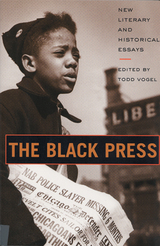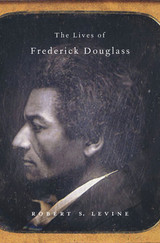
In a segregated society in which black scholars, writers, and artists could find few ways to reach an audience, journalism was a means of dispersing information to communities throughout the United States. The black press has offered incisive critiques of such issues as racism, identify, class, and economic injustice, but that contribution to public discourse has remained largely unrecognized until now. The original essays in this volume broaden our understanding of the “public sphere” and show how marginalized voices attempted to be heard in the circles of debate and dissent that existed in their day.
The Black Press progresses chronologically from slavery to the impact and implications of the Internet to reveal how the press’s content and its very form changed with evolving historical and cultural conditions in America. The first papers fought for rights for free blacks in the North. The early twentieth-century black press sought to define itself and its community amidst American modernism. Writers in the 1960s took on the task of defining revolution in that decade’s ferment. It was not been until the mid-twentieth century that African American cultural study began to achieve intellectual respectability.
The Black Press addresses the production, distribution, regulation, and reception of black journalism in order to illustrate a more textured public discourse, one that exchanges ideas not just within the black community, but also within the nation at large. The essays demonstrate that the black press redefined class, restaged race and nationhood, and reset the terms of public conversation, providing a fuller understanding of not just African American culture, but also the varied cultural battles fought throughout our country’s history.


With essays that examine stamps, cartoons, novels, film, art, music, travel documents, and governmental publications, Hemispheric American Studies seeks to excavate the complex cultural history of texts and discourses across the ever-changing and stratified geopolitical and cultural fields that collectively comprise the American hemisphere. This collection promises to chart new directions in American literary and cultural studies.

Frederick Douglass’s fluid, changeable sense of his own life story is reflected in the many conflicting accounts he gave of key events and relationships during his journey from slavery to freedom. Nevertheless, when these differing self-presentations are put side by side and consideration is given individually to their rhetorical strategies and historical moment, what emerges is a fascinating collage of Robert S. Levine’s elusive subject. The Lives of Frederick Douglass is revisionist biography at its best, offering new perspectives on Douglass the social reformer, orator, and writer.
Out of print for a hundred years when it was reissued in 1960, The Narrative of the Life of Frederick Douglass (1845) has since become part of the canon of American literature and the primary lens through which scholars see Douglass’s life and work. Levine argues that the disproportionate attention paid to the Narrative has distorted Douglass’s larger autobiographical project. The Lives of Frederick Douglass focuses on a wide range of writings from the 1840s to the 1890s, particularly the neglected Life and Times of Frederick Douglass (1881, 1892), revised and expanded only three years before Douglass’s death. Levine provides fresh insights into Douglass’s relationships with John Brown, Abraham Lincoln, William Lloyd Garrison, and his former slave master Thomas Auld, and highlights Douglass’s evolving positions on race, violence, and nation. Levine’s portrait reveals that Douglass could be every bit as pragmatic as Lincoln—of whom he was sometimes fiercely critical—when it came to promoting his own work and goals.
READERS
Browse our collection.
PUBLISHERS
See BiblioVault's publisher services.
STUDENT SERVICES
Files for college accessibility offices.
UChicago Accessibility Resources
home | accessibility | search | about | contact us
BiblioVault ® 2001 - 2024
The University of Chicago Press









